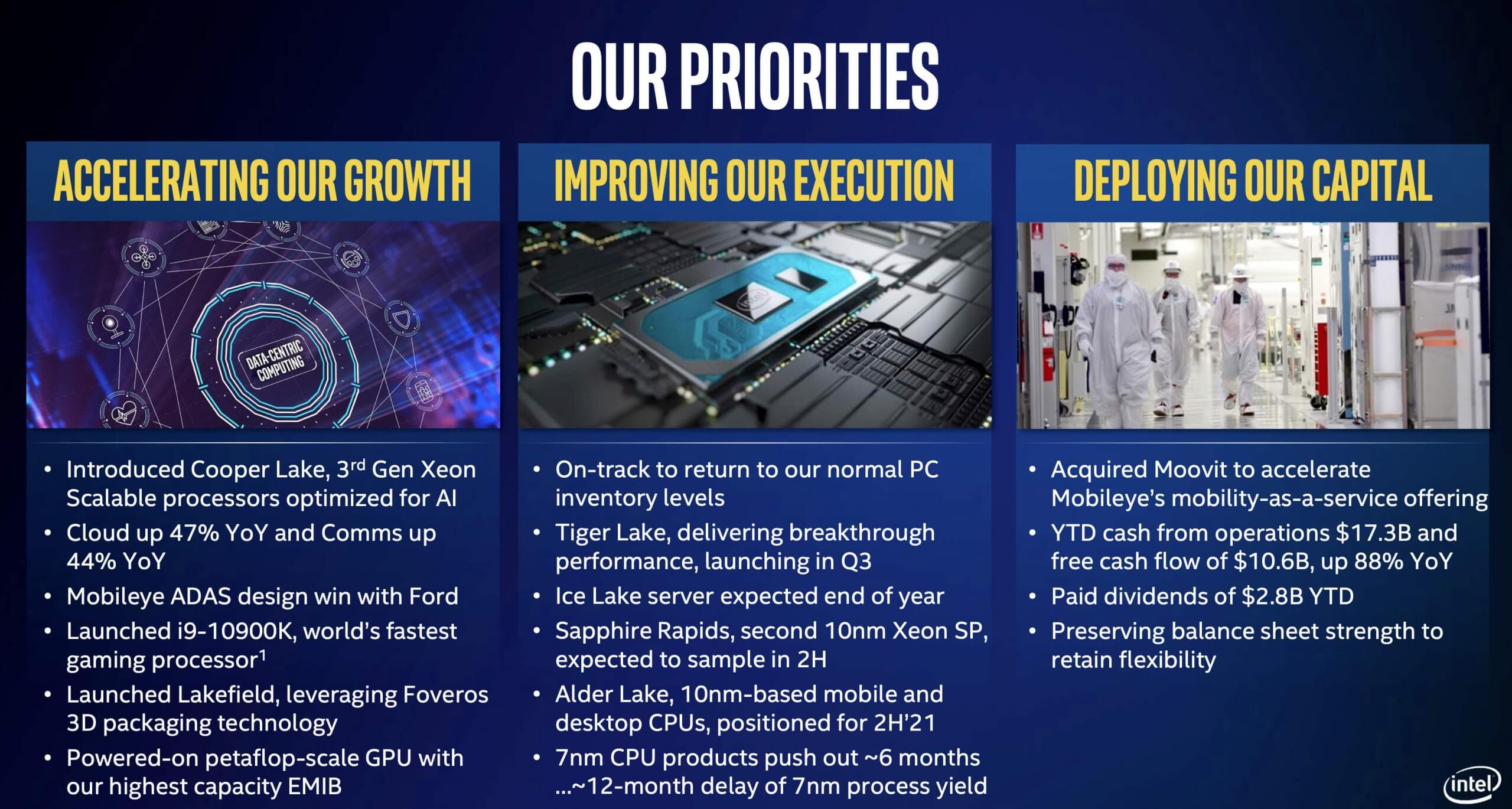Good news, bad news: Intel just released its Q2 2020 earnings report. The good news is revenue is up by 20 percent, and earnings per share saw a 16-percent uptick. The bad news is that the company has to delay its 7nm CPUs by at least six months because production has fallen a year behind. In response, it will be increasing efforts producing 7nm and 10nm wafers.

Intel released its second-quarter earnings report for 2020 on Thursday. The company mentioned that the rollout of its 7nm processors would be delayed by six months. It appears that production is backed up and is 12 months behind schedule.
"The company's 7nm-based CPU product timing is shifting approximately six months relative to prior expectations," Intel said in its press release. "The primary driver is the yield of Intel's 7nm process, which based on recent data, is now trending approximately twelve months behind the company's internal target."
It cites COVID-19 complications as causing problems in operations and production. The pandemic, and the "unprecedented" measures imposed by authorities, have significantly increased the company's economic and demand uncertainty. However, Intel believes that six months is enough to make up the 12-month deficit.

In the meantime, it will ramp up its 10nm Intel Cores, including "Tiger Lake" CPUs and "Ice Lake" server processors, which should be shipping by the end of the year. It also said that it plans to launch a new line of client CPUs code-named "Alder Lake" in the second half of 2021. This line will include Intel's first 10nm desktop processor and a new server wafer code-named "Sapphire Rapids" based on the same process.
The earnings report did not mention how Intel plans to accelerate both the 7nm and 10nm production lines, especially amid the ongoing coronavirus restrictions and supply chain complications. It promised further explanation would come during its earnings conference call, which happened a few hours ago. However, as of this writing, it has not yet posted the discussion to its earnings results page. Keep an eye out there for more information.
On the upside, year-over-year revenue and earnings per share are up by 20 and 16 percent, respectively. Cloud and communications are also up 47 and 44 percent YoY. These increases moved capital cash flow up 88 percent YoY to $10.6 billion, and paid dividends of $2.8 billion year-to-date.
https://www.techspot.com/news/86116-intel-earnings-report-7nm-process-suffer-six-month.html
